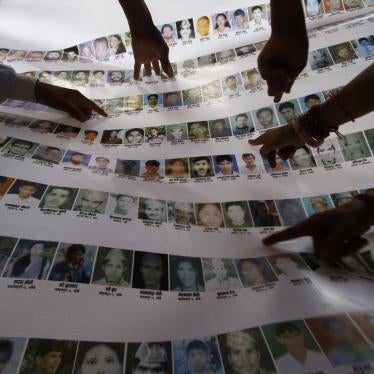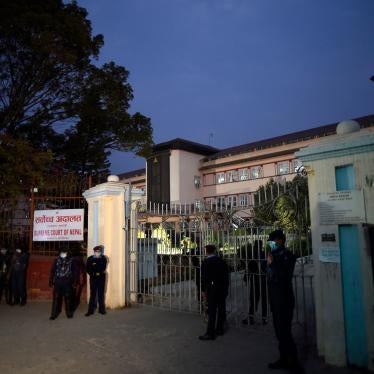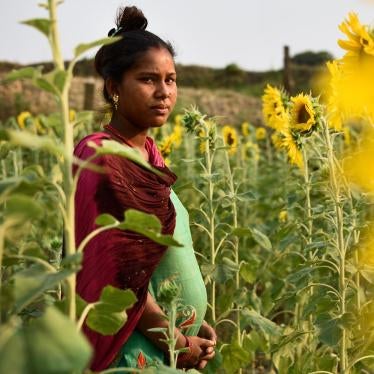(New York) – Inadequate and unequal access to health care in Nepal was exacerbated during 2021 by government failures to respond to the Covid-19 pandemic, Human Rights Watch said today in its World Report 2022. The government’s failures led to many preventable deaths, while a pervasive culture of impunity continues to undermine fundamental human rights in the country.
“A lack of effective government leadership in Nepal means that little is done to uphold citizens’ rights, leaving millions to fend for themselves without adequate services such as for health or education,” said Meenakshi Ganguly, South Asia director at Human Rights Watch. “Meanwhile, successive governments have refused to address conflict-era violations, entrenching a culture of impunity in which the police now frequently operate outside the rule of law.”
In the 752-page World Report 2022, its 32nd edition, Human Rights Watch reviews human rights practices in nearly 100 countries. Executive Director Kenneth Roth challenges the conventional wisdom that autocracy is ascendent. In country after country, large numbers of people have recently taken to the streets, even at the risk of being arrested or shot, showing that the appeal of democracy remains strong. Meanwhile, autocrats are finding it more difficult to manipulate elections in their favor. Still, he says, democratic leaders must do a better job of meeting national and global challenges and of making sure that democracy delivers on its promised dividends
Serious rights challenges remained unaddressed for months in Nepal during internal political infighting, when the government was largely paralyzed by a struggle over the post of prime minister and repeated dissolutions of parliament. Both the governments of prime minister K.P. Oli and Sher Bahadur Deuba, who succeeded him in July, continued to stall on transitional justice for conflict-era abuses, instead of using non-functioning and discredited transitional justice commissions to block progress on accountability.
During a major wave of Covid-19 infections, which peaked in May, senior health officials described a health system at the breaking point, with patients dying due to a lack of bottled oxygen. After decades of progress in maternal and neonatal health, there was a substantial drop in the number of births at health facilities.
Nepal had made progress in reducing child labor in recent years, but the economic impact of the Covid-19 pandemic, together with school closures and inadequate government assistance, pushed children back into the worst forms of labor. Nepal has one of the highest rates of child marriage in Asia. This situation worsened during the pandemic, as children were pushed out of education and families faced increased poverty.
There remains no progress in addressing the more than 60,000 complaints of abuses during the 1996-2006 conflict that have been registered with two transitional justice commissions. Successive governments have promised to bring the law on transitional justice into conformity with international law, as the Supreme Court directed in 2015, but have failed to do so. One of the first actions of Sher Bahadur Deuba upon becoming prime minister was to extend the commissioners’ terms for another year.
Systematic impunity for human rights abuses extends to ongoing violations, undermining the principles of accountability and rule of law in post-conflict Nepal. Frequently, the victims of abuses belong to marginalized communities. According to Nepal police data, reported cases of rape increased by 18 percent in 2021. Police were often reluctant to register cases, investigations were frequently ineffective, and survivors had inadequate protection from retaliation.
The authorities routinely fail to investigate or prosecute killings or torture allegedly carried out by security forces. In one exception, in July a soldier was found guilty in the death of Raj Kumar Chepang, in what is believed to be the first successful prosecution for torture since it was criminalized in domestic law in 2018. However, he was sentenced to only nine months in prison.







